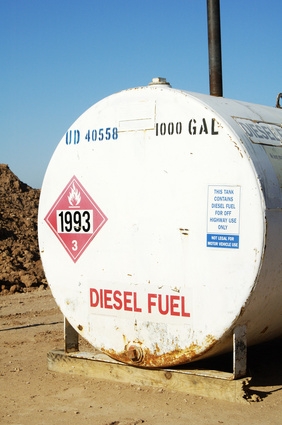
TDI, or turbo direct injection, is a type of engine used in selected Volkswagen and Audi vehicles. As of this writing in November 2010, the Volkswagen Group offers two TDI engines in the United States--a 2.0 liter four-cylinder variant used in the Jetta, Golf and Audi A3, and a 3.0 liter six-cylinder variant used in the Touareg and Audi Q7.
TDI engines share a number of common features, the most important being that the engines require modern low sulfur diesel fuel, which gives them the ability to meet emissions regulations in all 50 states. They are all turbocharged and all directly inject the fuel into their cylinders' combustion chambers. Unlike gasoline engines, they do not have spark plugs; instead, the heat generated by high levels of compression ignites the fuel.
The Volkswagen Group's four-cylinder TDI engine has a 2.0 liter displacement. It operates at a high compression ratio of 16.5 to one and has a bore and stroke of 3.19 and 3.74 inches, respectively. Although it only makes 140 horsepower at 4000 revolutions per minute, its generous 236-pound feet of torque come into play at only 1750 to 2500 revolutions per minute. In a two door Golf with an automatic transmission, for instance, it generates an EPA rating of 30 miles per gallon in the city and 42 on the highway.
The six-cylinder engine is a much more powerful engine. It generates 225 horsepower and 406-foot pounds of torque when spinning at 3500 to 4000 and 1750 to 2250 revolutions per minute, respectively. Its displacement is 3.0 liters and its bore and stroke are 3.27 and 3.6 inches, while its compression is even greater at a ratio of 16.8 to one. Although the Touareg's fuel economy rating of 18 miles per gallon in the city and 25 on the freeway may not seem impressive, these ratings are for an off-road capable SUV with a towing capacity of 7,716 pounds.